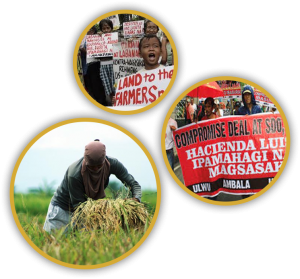
About CAWI
During the 28 September 2004 informal meeting of non-government organizations (NGOs), agriculture associations, trade unions and women’s organizations in Kathmandu, Nepal, it was noted that there were fundamental commonalities in the struggles and issues facing agricultural workers, plantation workers and peasants worldwide and there was a need to strengthen their unity. Building on the discussions in the said gathering, we agreed during a follow-up meeting on 20-22 May 2005 in Penang, Malaysia that there must be a strong push for the rights of agricultural workers and their issues and struggles which must be globally highlighted. Thus, the Coalition of Agricultural Workers International or CAWI was formed.
Organisational Structure
The highest decision-making body of CAWI is its Congress which shall be held every three (3) years and shall be attended by all its members. The Congress elects the members of the Steering Council, which provides overall direction and guidance for CAWI and ensures the implementation of its general program of action. A Secretariat, meanwhile, is responsible for the coalition’s day-to-day actions.
Our Aims
- Demanding living wages, just labour laws, safe working conditions,
- Resisting the TNCs, corporate agriculture and hazardous technologies, and rights to livelihood, land and resources
- Asserting equal rights and recognition of the rights of women and protection of children, and fair treatment and recognition of rights of discriminated communities and migrants
- Protecting children against child and bonded labour
- Doing research and publications, broadening membership, sharing, supporting actions and building solidarity amongst members
- Developing critical analysis, mobilising and challenging policies of Governments, International Institutions/Agencies and TNCs that affect agricultural workers
Areas of Work
- Living Wages, as agricultural workers are generally the lowest paid and most exploited group across the world
- TNCs and Hazardous Technologies which have brought about serious effects and problems on the health of workers, women, children and the community
- Rights to Livelihood, Land and Resources as these rights have been taken away, diminished or weakened by Government policies or influenced by TNC’s
- Dalits – as they are the largely agricultural workers who are the most ill-treated, discriminated and looked down upon community in India


